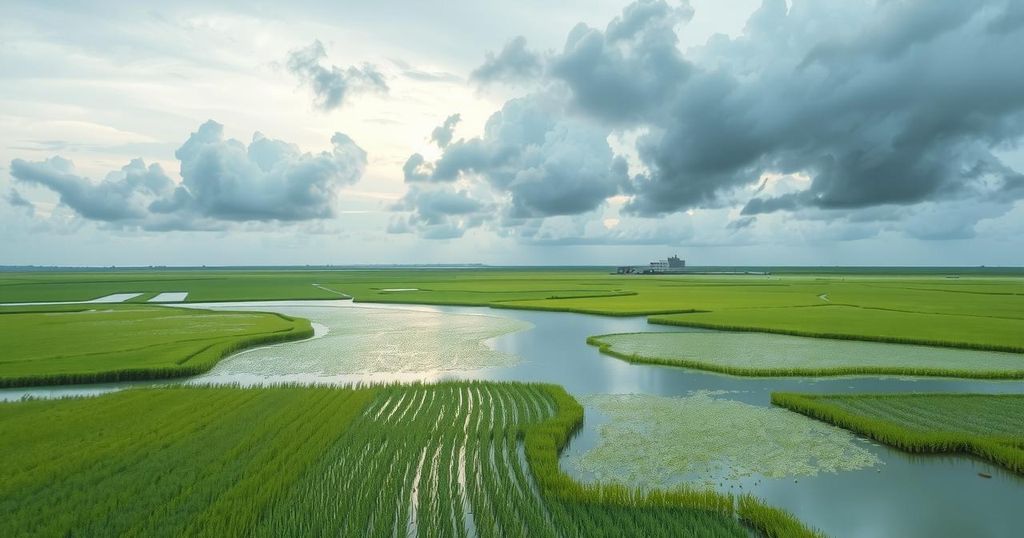Severe Flooding Displaces Thousands in Somalia, Urgent Aid Needed
Recent floods in Somalia have displaced nearly 300,000 people, causing severe humanitarian crises. Heavy rains have inundated homes and farmland, prompting a call for urgent aid. International organizations are mobilizing support, but challenges remain due to ongoing conflict and inadequate infrastructure. The Somali government has declared a state of emergency as conditions worsen.
Recent flooding in Somalia has caused significant devastation across various regions, displacing thousands and raising urgent concerns among humanitarian organizations. Local officials reported that heavy rains have resulted in rivers breaching their banks, leading to widespread inundation of homes and farmland. The flooding has been particularly severe in areas already suffering from conflict and poverty, making the situation dire and increasingly complicated.
Authorities estimate that nearly 300,000 individuals have been displaced as a direct result of these floods. As communities struggle to cope with their losses, access to basic necessities such as clean water, food, and medical care becomes even more critical. Relief efforts are hampered by existing challenges, including the ongoing conflict and insufficient infrastructure, complicating the delivery of aid to affected areas.
International humanitarian organizations, including the United Nations, are mobilizing to provide support and assistance. They are working to assess the needs of the impacted populations and are preparing to distribute essential supplies. A United Nations spokesperson emphasized the need for immediate action, as “the affected communities urgently require food, shelter, and medical assistance.” The international community’s response in the coming days will be crucial in determining the extent of assistance that can be provided.
This year marks a continuation of adverse weather patterns affecting Somalia, which has also struggled with drought in recent years. The cyclical nature of extreme weather is exacerbating the humanitarian situation, leaving many residents at increased risk for food insecurity and health crises. The unpredictability of seasonal rains presents a challenge for farmers, many of whom have lost crops due to flooding.
As the situation develops, local and international agencies are calling for more attention and resources to effectively respond to these humanitarian needs. The Somali government has declared a state of emergency, appealing for both national and international support in light of the unfolding disaster. The sequence of events highlights the urgent need for a sustainable approach to disaster preparedness in this vulnerable region.
In summary, the recent floods in Somalia have led to significant displacement and increased humanitarian needs, with nearly 300,000 people affected. The combination of adverse weather patterns, ongoing conflict, and inadequate infrastructure complicates relief efforts. International organizations are beginning to mobilize assistance, but urgent action is required to mitigate further suffering among the affected populations. The government’s declaration of a state of emergency underscores the gravity of the situation and signals the immediate need for support from both national and global communities.
Original Source: www.chronicleonline.com




Post Comment